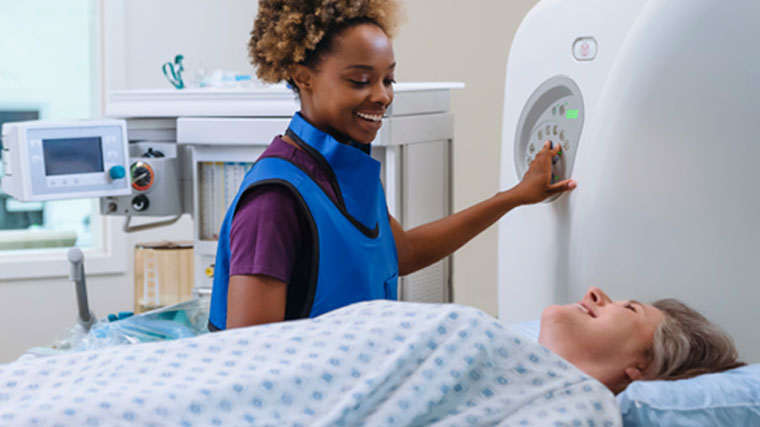This Simple Test Could Save Your Life

Answer a few questions and we'll provide you with a list of primary care providers that best fit your needs.
It’s quick, convenient, inexpensive, and could save your life. We’re talking about a CT scan of your heart that takes less than 30 minutes.
“Basically, the heart CT, also called a coronary calcium scan, takes pictures of the arteries around your heart. It shows if calcium deposits are in those arteries,” explains cardiologist J. Bradley Gibson, DO, FACC. “The results help us know if your arteries contain plaque, and if so, how much.”
Because plaque can cause a heart attack, this scan is a valuable tool in determining if you have heart disease or may be headed for a heart attack.
Who Should Be Tested?
Because the results help doctors clarify your risk of heart disease, Dr. Gibson says the scan typically is ordered for patients who may be at risk. This includes patients with one or more of the following:
- Diabetes
- High blood pressure
- Family history of heart disease
- Obesity
- Physical inactivity
- Smoking habit
“We also want patients to be scanned if we’re on the fence about starting them on a medication to lower cholesterol,” says Dr. Gibson. “If the scan shows a high level of calcium, we’d take action and put them on medication. But it’s also possible for a patient with high cholesterol to have a scan that shows little to no calcium in their arteries, in which case we may not recommend medication.”
What Does Your Calcium Score Mean?
Your scan result – called your calcium score – is actually two numbers, explains Dr. Gibson. “The first number tells us how much calcium is present in your coronary arteries.” Your score can range from 0 (no calcium detected) to more than 400. “The higher your score, the greater your chance of having a heart attack,” says Dr. Gibson.
The second number you receive is a percentage. It indicates how the amount of calcium in your arteries compares to people of your same age and sex.
Getting Your Results
The information from your heart CT helps your doctor further stratify your risk for heart disease.
“Results help guide treatment plans for lipid management and blood pressure control,” Dr. Gibson says. “They also help us give the patient some concrete information regarding their score and how important it is for risk factor modification, such as keeping their glucose under control, stopping smoking, increasing exercise, and more closely monitoring symptoms.”
Your doctor also could recommend further testing, such as a stress test or even cardiac catheterization, Dr. Gibson says.
What Does Heart CT Involve?
The heart CT is noninvasive. The test requires no needles, no dyes, no injections, and no exercise. And you’ll stay in your street clothes during the test.
You’ll lie flat on your back on the CT examination table. A technician will attach electrodes to your chest on small, sticky discs to monitor electrical activity of your heart with an electrocardiograph (EKG) machine. This enables CT scans to be recorded between contractions of your heart to create a clearer image.
While lying on the table, you’ll be asked to hold your breath for 10 to 20 seconds while the CT machine performs the scans.
The entire procedure is usually completed within 10 minutes.
Ready To Schedule Your Test?
Heart disease continues to be the leading cause of death for men, women, and people of most racial and ethnic groups in the United States. That’s why the information provided by the heart CT has the potential to be lifesaving.
Premier Health offers convenient locations throughout Southwest Ohio. Call (855) 887-7364(855) 887-7364 to talk to a member of our scheduling team.
Answer a few questions and we'll provide you with a list of primary care providers that best fit your needs.
Source: J. Bradley Gibson, DO, FACC, Premier Cardiovascular Institute; Centers for Disease Control and Prevention





